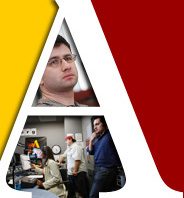Saturday, May 27, 2017
Presentation: Scenarios of the Future
Panel presentation at the annual conference of the International Communication Association. San Diego, CA. Abstract: Scenarios are often described as stories of alternative futures (Riley, 2014). They have recently come to feature prominently in concepts such as premediation (Grusin, 2010) and transmedia storytelling (Li, 2014). This is in part fueled by deterministic stances around critical issues such as globalization and politics (Jameson, 2010). To counter notions of “there is no alternative,” scholars posit the intervention of scenarios that afford multiple plausible narratives of the future, which are compared are explored creatively and playfully. Galloway (2015) states that because, “anti-determinism is a common position today, in both popular and academic conversations alike. Redemptive narratives in social and political theory are usually centered around things like contingency or play, or other mechanisms for eluding determination such as escape or accident”.
This project explores the narratology of alternative scenarios both theoretically and empirically mediated in legacy reporting and in social media. This project uses the case of immigration. Such interactions may very well reveal significant similarities or differences among media systems and national contexts of immigration politics. These interactions are taking place in new cultural, political, and economic terrain in the West, and remediated globally. The ‘growth scenario’ of continued economic progress is becoming increasingly obsolete. Media and public discourses surrounding Brexit, for example, particularly those supportive of the scenario where the United Kingdom leaves the European Union (EU), showcase alternative logics of the future. Similar skepticism of globalization also pervades the narratives of Donald J. Trump and his “Make America Great Again” scenario. While discourses of the future revolving around disruption for the sake of innovation are still dominant in places such as Silicon Valley and metropolises around the world that have proven to be adaptive to change, areas left behind in the wake of the purported knowledge economy are seen as increasingly receptive to nostalgic scenarios of a ‘better’ era, which frame the ideal future as one where the past is resurrected.
Scenario Lab researchers: Riley, P., Kim, H. T., Demetriades, S. Z., Hagen, C., Wang, G., Guth, K.
Posted by webtech on 05/27 at 07:30 AMBlogging •

Organizations
Acceleration Studies Foundation, USA
The Centre for Scenario Planning and Future Studies, University of Strathclyde, UK
Copenhagen Institute for Futures Studies, Denmark
Hawaii Research Center for Futures Studies, University of Hawaii, USA
Institute for Alternative Futures, USA
Oxford Scenarios Program, Oxford University, UK
RAND Frederick S. Pardee Center for Longer Range Global Policy and the Future Human Condition, USA
Scenario Planning Institute, Colorado State University, USA
World Futures Studies Federation
Blogs



